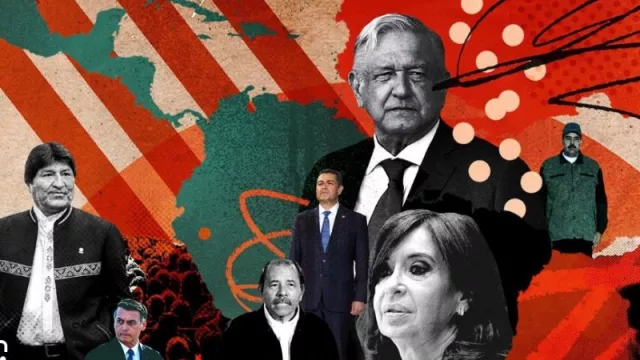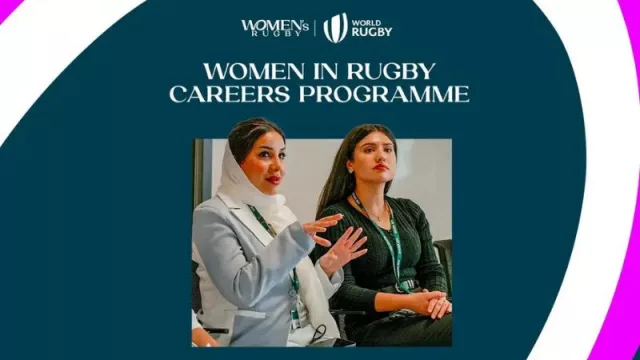Fanaticism, whether religious, racial, minority-based, majority-based, or ideological-political, is perhaps the main obstacle in any society. It only breeds manipulation, cognitive blindness, violence, poverty, lies, and becomes a breeding ground for corruption and deceit. Noble people are often trapped by cultural beliefs or manipulated through emotional and ideological means, being used to support all kinds of totalitarianism.
Throughout its history, America has fallen prey to major populists. It is crucial to distinguish them in order to evolve into free and developed societies.
These journalists have stood out for their impartiality, journalistic rigor, and commitment to truth in their respective countries. They have faced challenges and risks in their pursuit against ideological bias. They represent just a sample of outstanding professionals in this field and are recommended for analyzing, listening to, and reflecting on their contributions to society:
Jorge Ramos (Mexico/United States): He is a renowned Mexican-American journalist and one of the leading figures in Spanish-language journalism in the United States. He has worked for the news network Univision and currently hosts the program "Al Punto." Ramos is known for his critical approach to power and his defense of immigrant rights. He has written several books, including "A Country for All: An Immigrant Manifesto."
Patricia Janiot (Colombia/United States): She is a Colombian journalist who has worked for CNN en Español. She has been recognized for her work in covering political and social issues in Latin America. Janiot has received several awards, including the Emmy and the National Journalism Award in Colombia. Currently, she is the presenter of the program "Panorama Mundial" on Univision.
Julio Blanck (Argentina): He is a renowned Argentine journalist who has worked for the newspapers Clarín and Perfil, among other media outlets. He has stood out for his critical approach and defense of press freedom. Blanck has written several books, including "El País Que No Miramos" (The Country We Don't See) and "Periodismo y Poder" (Journalism and Power).
Carlos Fernando Chamorro (Nicaragua): He is a Nicaraguan journalist and director of the independent media outlet Confidencial. Chamorro has been an outspoken critic of the Nicaraguan government and has faced threats and repression for his journalistic work. His work has been recognized with the International Press Freedom Award from the Committee to Protect Journalists.
Miriam Leitão (Brazil): Miriam Leitão is a Brazilian journalist known for her work at the newspaper O Globo and the news channel Globo News. She has distinguished herself for her political and economic analysis, as well as her defense of democratic values. Leitão has written several books, including "Saga Brasileira: A Longa Luta de um Povo por sua Moeda" (Brazilian Saga: The Long Struggle of a People for their Currency) and "Tempos Extremos" (Extreme Times).
María Elena Salinas (Mexico/United States): María Elena Salinas is a Mexican-American journalist who has worked for the news network Univision. She has been recognized for her coverage of immigration, civil rights, and politics. Salinas has received numerous awards, including several Emmys and the Peabody Award.
Gustavo Gorriti (Peru): Gustavo Gorriti is a renowned Peruvian journalist and director of the digital magazine IDL-Reporteros. He has investigated and exposed cases of corruption and abuses of power in Peru. Gorriti has received several international awards for Press Freedom from the Committee to Protect Journalists and the Maria Moors Cabot Prize from Columbia University.
Alejandra Xanic von Bertrab (Mexico): Alejandra Xanic von Bertrab is a Mexican investigative journalist known for her work in investigative journalism and exposing corruption cases. She co-authored the investigation that led to the Pulitzer Prize in 2013, awarded for her collaboration on the series of reports "The Walmart Effect" published in The New York Times.
Daniel Coronell (Colombia): Daniel Coronell is a Colombian journalist known for his work in investigating corruption and abuse of power in Colombia. He has served as news director for various media outlets and has received awards such as the King of Spain Award and the Ortega y Gasset Award for his journalistic work.
Lydia Cacho (Mexico): Lydia Cacho is a Mexican journalist, writer, and human rights defender. She has been recognized for her work in investigating and exposing cases of human trafficking and child abuse. Her book "Los Demonios del Edén" (The Demons of Eden) exposed a pedophilia network in Mexico and the corruption that protects it. Cacho has faced threats and retaliation for her work but continues to be an influential voice in the fight for justice and human rights.
Jorge Lanata (Argentina): Jorge Lanata is a renowned Argentine journalist who has investigated and exposed cases of corruption and abuse of power in Argentina. He has worked in various media outlets and has hosted television programs such as "Periodismo para Todos" (Journalism for Everyone) and "PPT Investigación" (Investigative PPT). Lanata has received multiple awards for his journalistic work and has been recognized for his courage in exposing corruption in his country.
Carmen Aristegui (Mexico): Mexican journalist known for her radio program and work on television. She has investigated cases of corruption and exposed the lack of transparency in the Mexican government. Her journalistic work has been internationally recognized.
Carlos Loret de Mola (Mexico): Mexican journalist and presenter who has worked in various media outlets. He has investigated and exposed cases of corruption and abuse of power in Mexico. His work has been recognized with several awards, and he is known for his rigor and objectivity.
Jon Lee Anderson (United States): American journalist known for his work in The New Yorker magazine. He has covered conflicts and political issues in Latin America and provided an impartial and analytical perspective on regional events.
These journalists play a crucial role in upholding journalistic integrity, uncovering the truth, and challenging populist narratives and ideologies. Their dedication to unbiased reporting and holding those in power accountable is vital for the progress and development of societies in the Americas.












Tu opinión enriquece este artículo: